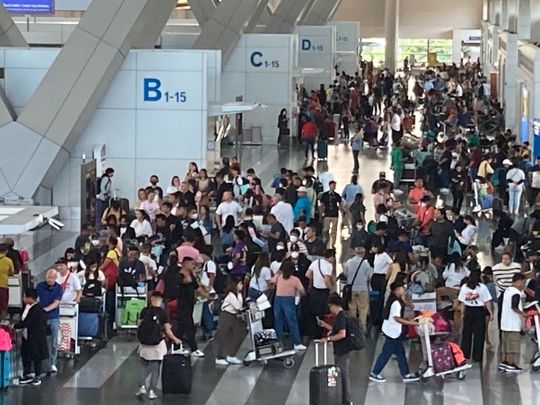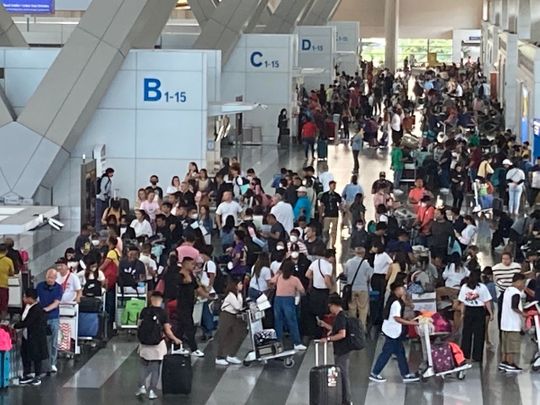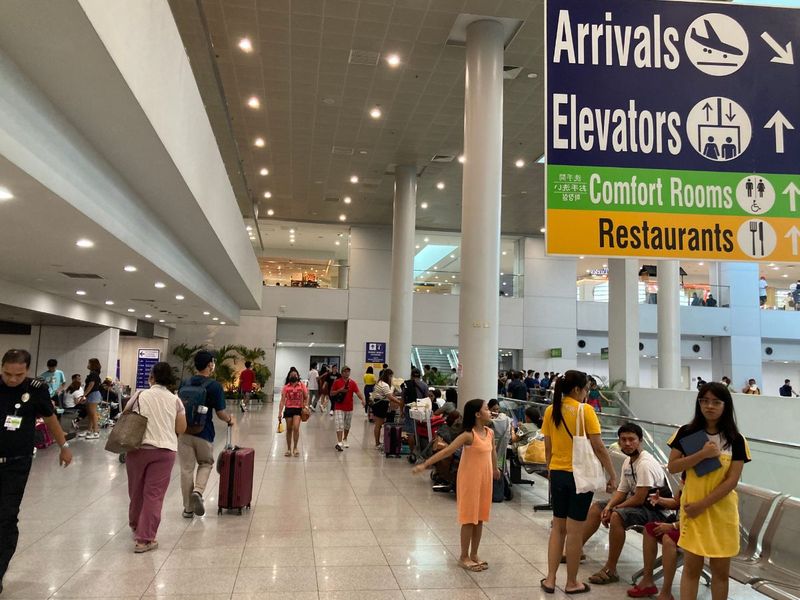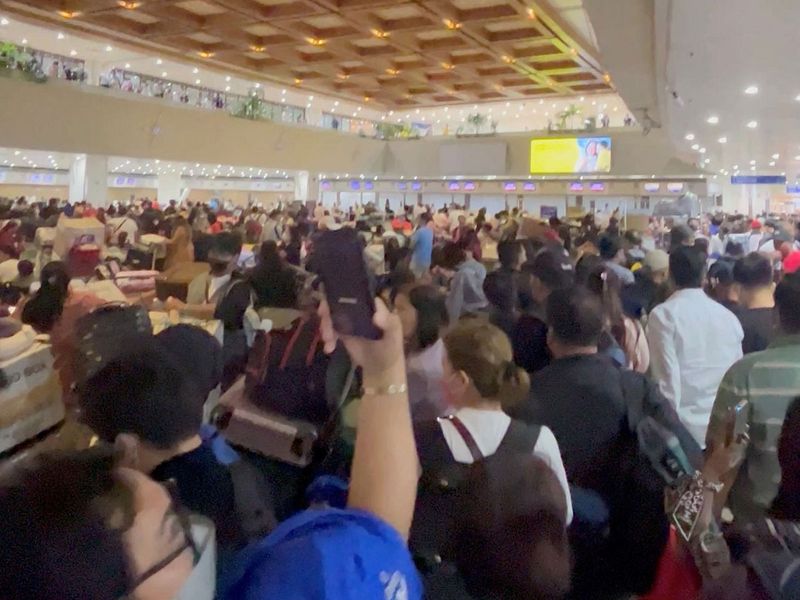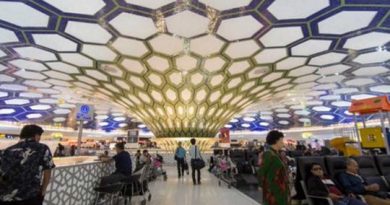Philippines: 32,000 'offloaded' at airports, key points on revised guidelines for Filipino travellers
Manila: Were you one of the 32,000 Filipinos “offloaded” in 2022? Disallowed to board your outbound flight due to extra quizzing by airport immigration officers in the Philippines?
So you’ve been marked as being a potential human trafficking victim. The worst part: reimbursing the full value of your ticket, as a “no-show”, is next to impossible, as per most airline rules.
Ticket refunds generally depend on the ticket class you’re holding. A more rigid no-refund, no-date-change rule applies to most cheap tickets. In short, after offloading, it’s mostly money down the drain.
Glimmer of hope
But don’t worry, there’s a glimmer of hope.
The Philippine Senate’s latest initiative to compensate individuals who were offloaded from flights due to extended questioning by immigration officers in their commitment to combat human trafficking might offer these affected passengers a chance to recover their expenses.
How?
It will be part of the 2024 General Appropriations Act, which Filipino legislators are now deliberating on.
Senator Francis Escudero, a Filipino lawmaker, is one of the proponents of the move.
On Monday, he expressed confidence that a committee tackling line-by-line harmonisation of two versions of the 2024 General Appropriations Bill — one approved by the Senate, and another by the House of Representatives — will accept an “insert” made by the Senators that will allow reimbursement of Filipino passengers who were offloaded.
The General Appropriations Act (GAA) is the government’s annual budget approved by legislators (from both chambers), who are empowered by the Constitution to have control over the country’s purse-strings.
The provision Escudero is referring to refers to an item in the proposed GAA that will allow reimbursement of Filipino passengers who were off-boarded.
Off-loaded because of credit-card debt?
Having a credit card debt per se is not among the reasons listed by the BI for offloading. The decision is made according to certain indicators — such as travel history.
Where will the funds for refunds come from?
Senator Escudero, a comeback senator who served as governor of his home province of Sorsogon, has proposed the special provision in the 2024 budget.
The offloading funds will be added to budget of the Bureau of Immigration (BI).
During the budget deliberations at the Senate, the Harvard-educated legislator, who is also lawyer, said it is only appropriate that the government pay back the people who had been offloaded in 2022 alone.
How many people were offloaded?
Bureau of Immigration (BI) records in 2022 show that a total of 32,404 Filipino passengers were not allowed to proceed with their flights last year, of which 472 were found to be victims of human trafficking or illegal recruitment.
Besides, he pointed out that the proposed payment will not need more budgetary requirement since the money will be charged against the BI’s earnings from collections.
My expectation is firm that bicam (bicameral conference committee, a joint body from both the Philippine Senate and House of Representatives) will accept this because the fund will be coming from the 10 percent of the Bureau of Immigration's collections which is just being returned to National Treasury every year.
“My expectation is firm that bicam (bicameral conference committee, a joint body from both the Philippine Senate and House of Representatives) will accept this because the fund will be coming from the 10 percent of the Bureau of Immigration’s collections which is just being returned to National Treasury every year,” Escudero said in Filipino, as reported by the Philippine News Agency (PNA).
Will it affect the salaries of immigration officers?
No. Escudero assured that immigration officers’ overtime pay and other expenses will not be affected in his proposal.
Is the proposed reimbursement retroactive?
Yes. “To be clear,” said Escudero, “this is a retroactive provision. All those who were offloaded in the past can claim. It is up to the BI on what they will require the passengers.”
What are the rules for reimbursement?
It is unclear at this point.
What is a bicameral committee?
A Bicameral Conference Committee, also knownas “Bicam”, is formed to reconcile the disagreeing provisions of the House and Senate versions of the bill. If there are certain differences, the Bicam is called to reconcile conflicting provisions of both versions of the Senate and of the House of Representatives. Conference committee submits report on the reconciled version of the bill, duly approved by both chambers.
Would the proposal pass screening by the bicam committee?
Escudero hopes it would pass the Bicam level and gets approved by both chambers. He also expressed optimism that President Ferdinand R. Marcos Jr. would not veto the aforementioned provision, considering that the allocated amount of Php200 million is a minor fraction of the government’s 5.7-trillion-peso ($103.07-billion) budget for 2024.
Updated IACAT guidelines: What to know
In August, the Inter-Agency Council Against Trafficking (IACAT) released updated guidelines for Filipinos traveling abroad to enhance citizen protection against human trafficking and illegal recruitment.
The new rules, effective since September 3, 2023 have sparked concerns among Filipinos, who argue that the requirements are excessively burdensome and may infringe on their right to travel.
Despite public unease, officials clarified in a press briefing that the revised protocols did not impose additional burdens on departing travellers.
Department of Justice spokesperson Mico Clavano told local media about the need for clear departure protocols to deter potential traffickers.
BI Commissioner Norman Tansingco reassured the public that the guidelines, in place since 2012 and recently refined by IACAT, primarily list requirements for various categories of departing Filipinos.
Should tourists worry about the revised guidelines?
Tansingco emphasised that departing tourists need not worry about the revised guidelines. The decision to revise guidelines followed a series of complaints from travelers who reported missing flights or being offloaded due to questioning by BI officers.
What are the basic requirements?
The basic travel requirements, applicable to over 95% of travelers, include:
- A passport valid for at least six months from departure,
- A boarding pass,
- An appropriate visa (if required), and
- A confirmed return or roundtrip ticket when necessary
Additional requirements may apply to first-time travelers, particularly those intending to seek employment abroad.
What proof of financial capacity should I prepare?
Regarding proof of financial capacity, Undersecretary Nicholas Felix Ty clarified that immigration officers generally do not request such documentation unless red flags or uncertainties about the traveler’s purpose of travel arise. Ty highlighted that travelers going to visa-required countries, like Europe, might have already established financial capacity through the visa application process.
I am a first-time Overseas Filipino worker (OFW), what documents should I present?
First-time overseas Filipino workers (OFWs) might be asked to show the following:
- An Overseas Employment Certificate (OEC) or OFW clearance,
- A valid employment visa or work permit, and
- An employment contract.
I am a first-time traveller, what documents should I have on me?
While seasoned travelers with a track record of uneventful trips may only need basic documents, officials suggested that first-time travelers, especially those seeking employment abroad, prepare supporting documents such as proof of financial capacity or a certificate of employment.
In addition to basic travel documents, immigration officers may request supporting documents based on the traveler’s category.
Self-funded travelers might need to provide the following:
- Proof of accommodation,
- Financial capacity, and | or
- Source of income.
What if a relative sponsored my travel?
Travelers sponsored by relatives may be required to present the following
- Original birth or marriage certificates,
- Copies of the sponsor’s passport, and
- Valid work visas or residence permits.
Non-relative or juridical entity sponsors may necessitate a notarised affidavit of support and guarantee along with documentation establishing the relationship, according to Tansingco.
Source: Read Full Article
